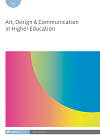
Full text loading...
 , Tania Ka’ai1
, Tania Ka’ai1 , Valance Smith1
, Valance Smith1 , Kathryn McPherson1
, Kathryn McPherson1
Enhancing student success has been increasingly a focus for universities. But the context has changed, with complex challenges including a global pandemic, rapid digital transitions and greater diversity with related inclusion needs. Creative thinking is essential to address what student success could (and arguably should) look like and be. In this article we utilize Appreciative Inquiry to rethink current knowledge and practice. We refer specifically to our context in Aotearoa New Zealand, where data shows that a change in approach is needed particularly for Māori students, Pacific students and other ‘new’ learners. We explore a different way of working and learning – ‘mahitahi’ – and argue that improving outcomes requires more than incremental or tactical shifts in action. We propose a re-imagining of diversity, inclusion and success for sustained transformation. Integrating Indigenous approaches to knowledge into innovative frameworks, adapting future-focused curriculum and creative practice pedagogy in the process, could benefit all students across disciplines.

Article metrics loading...

Full text loading...
References


Data & Media loading...

Publication Date:
https://doi.org/10.1386/adch_00075_1 Published content will be available immediately after check-out or when it is released in case of a pre-order. Please make sure to be logged in to see all available purchase options.